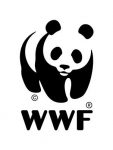
WWF Zambia
WWF ZAMBIA
Terms of Reference for short term consultancy on improved land use management in the Kafue Flats
WWF (The World Wide Fund for Nature) is an International Non-Governmental Organization. Our mission is to stop the degradation of the planet’s natural environment and to build a future in which humans live in harmony with nature. WWF Zambia seeks to hire a consultant for the design of business case for improved land use and water management practices in the Kafue Flats.
1. OBJECTIVES AND SCOPE OF THE CONSULTANCY
To build upon the Kafue Flats Water Stewardship initiative, WWF seeks to create a business case for improved land use practices and water resources management amongst agricultural entities in the Kafue Flats. The goal of this study is to understand the institutional framework, opportunities for investment, revenue and environmental benefits of engaging in improved water and land management amongst smallholder and commercial farmers within the landscape.
This study will contribute to WWF Zambia’s understanding of the financial feasibility of investments in agricultural efficient technologies, opportunities for capacity building amongst farmers and avenues for improved land management that has a net positive impact on the landscape.
Objective
The key objective of this work is to create a business case for investing in improved land use practices and agricultural efficiency amongst farmers of select crops in the Kafue Flats. The envisioned outcome is the development of a business case showcasing pathways for improved land use management, and revenue benefits of improved irrigation technologies as well as highlighting the cost of continuing with current practices. The business case will cover the complete life cycle analysis; financial, legislative, environmental (including climate), and social viability of such a project.
The scope of the Study shall include the following:
a) Institutional framework
i) Identify all stakeholders, including the relevant markets, regulators, other relevant government agencies and describe their specific roles and responsibilities;
ii) Laws and regulation in place regarding land use management, soil management, hazardous waste management, agricultural effluent and level of enforcement;
iii) Any existing legal obligations regarding critical biodiversity areas, soil and water use and monitoring management in agriculture, and the catchment at large.
b) Surveys, investigation and data collection
i) Conducting stakeholder meetings with relevant small holder and commercial
farmers, private sector value chain markets, and Government agencies ;
ii) Mapping of all farms and crops within a of selected area ; map current land
ownership;
iii) Assess current practices in waste disposal from farm inputs water, effluent and/or
sludge within the project area inclusive of any waste water.
iv) Assess impact of current soil and management practices on ecosystem services in
monetary terms.
c) Business Case
i) Assess the feasibility of improved water efficient irrigation technologies, improved
land management and impact on crop yield and projected profits;
ii) Assess present gaps in land, soil and waste management as well as useful
parameters for measuring change and impact;
iii) Identification of demand/ supply gap for appropriate technologies, waste
management systems, pesticide management systems and mechanisms;
iv) Create business case that shows clearly value addition in terms of revenue and
ecosystem services of applying improved land and water management techniques as
well as linkages to markets.
d) Project plan
i) Create appropriate timelines with a clear budget and impact regarding improvement
of water resources management, land management and capacity building for small
holder farmers;
ii) Development of commercially viable solutions/ models for the above with necessary
technical, commercial backup analysis and benefit analysis.
2. REQUIREMENTS
Submit a bid by emailing a cover letter, technical proposal, accompanying financial proposal, and CV/s to [email protected] with Kafue Flats Business Case in the subject line. The two proposals should be separate documents within one email. The CV/s must highlight the candidate’s technical strengths on agro-ecological systems, economics, understanding of market linkages, including previous experiences relevant work with relevant references.
Involvement in a comprehensive business case creation in the Southern Africa region and networks with Zambian agricultural institutions will be an added advantage.
Bids that will be handed in physically should have the technical proposal sealed in an envelope and marked clearly, the financial proposal should also be in a separate envelope marked clearly and both should be in one sealed bidding envelope.
Communication, clarifications and submissions about this consultancy should all be via email to: [email protected].
Only successful bidders will be contacted.
DEADLINE: 26th April, 2019 by 17:00hrs.